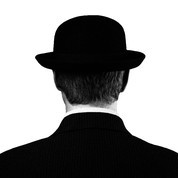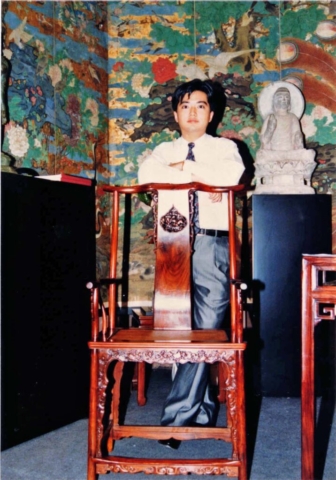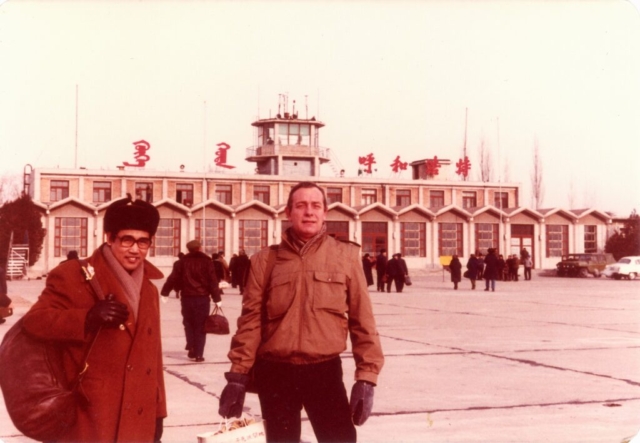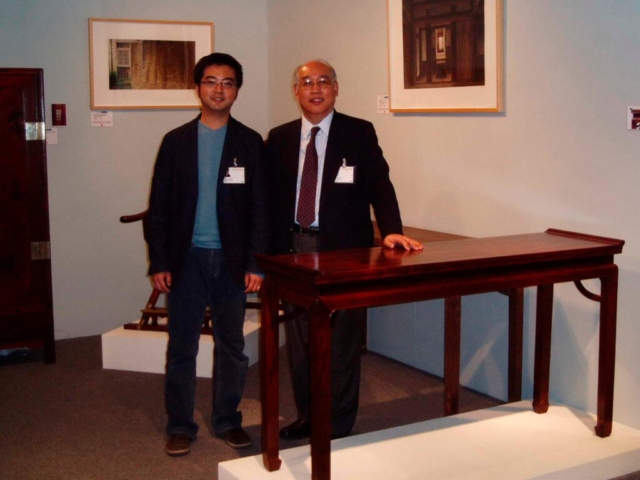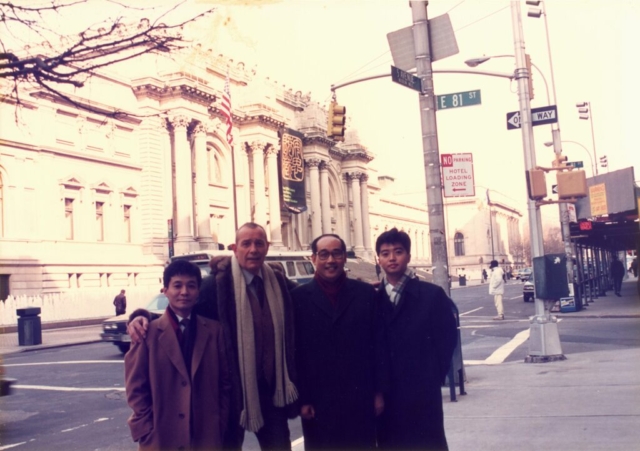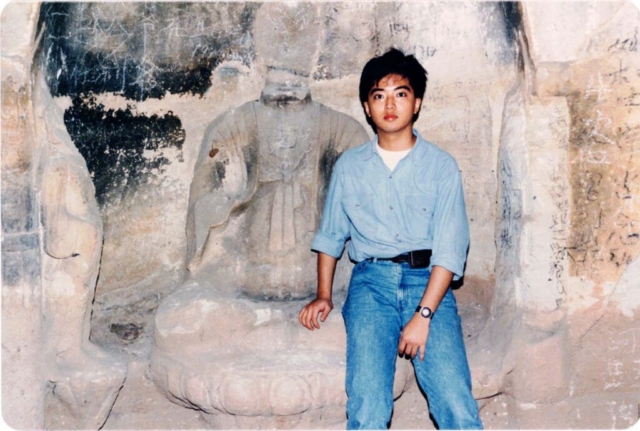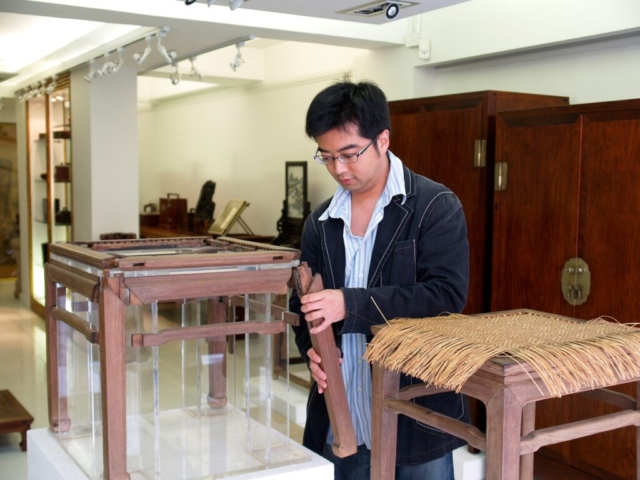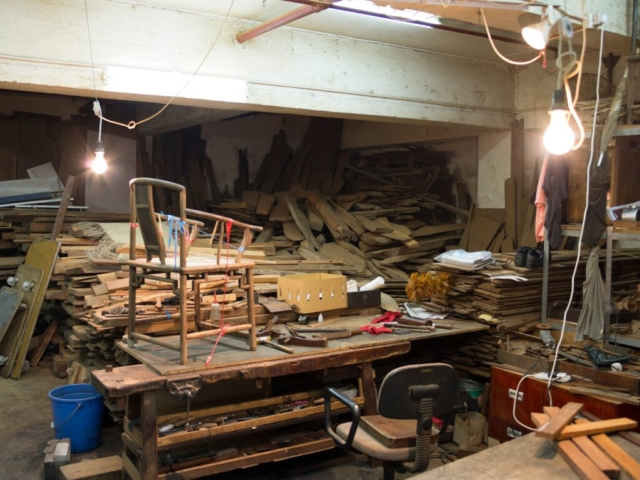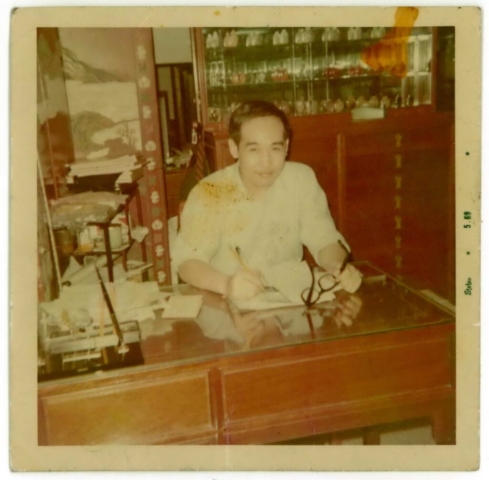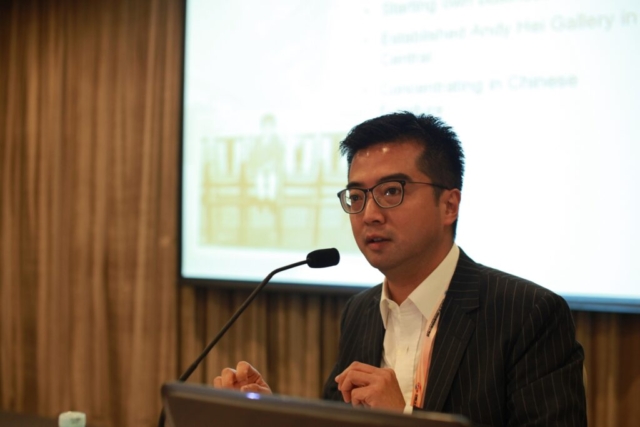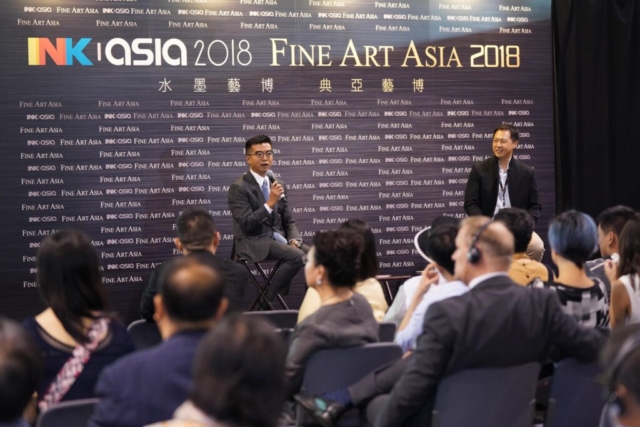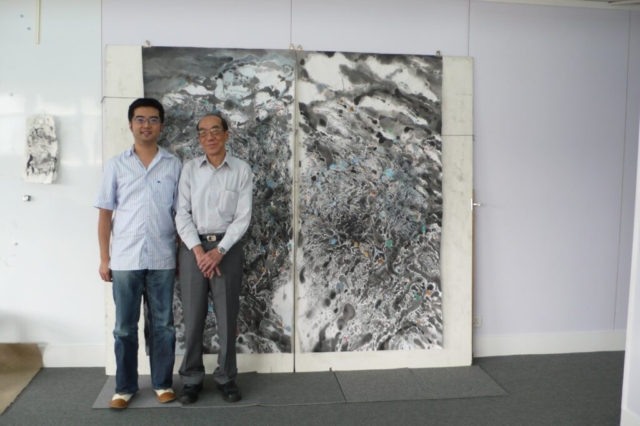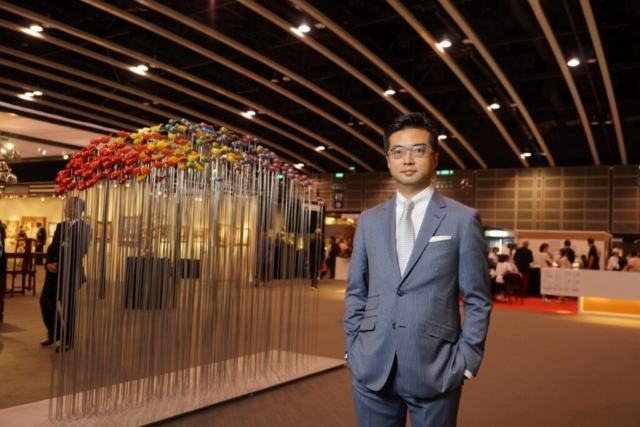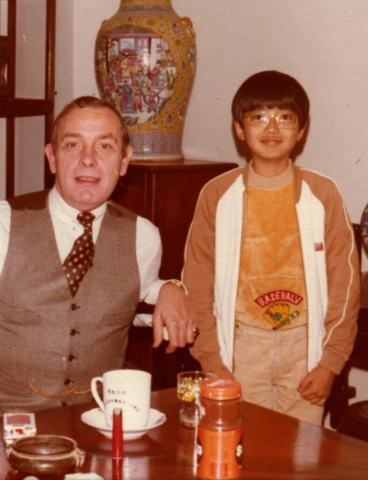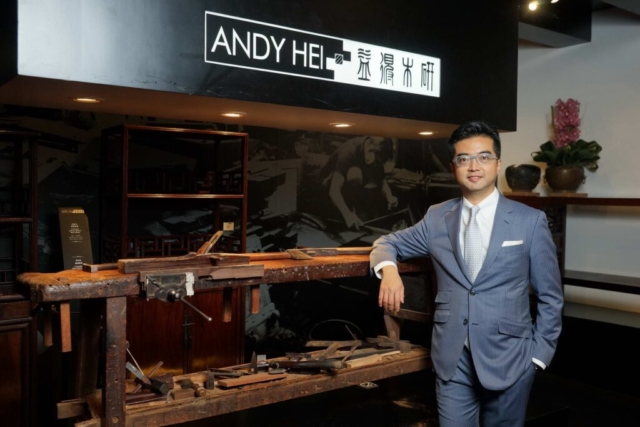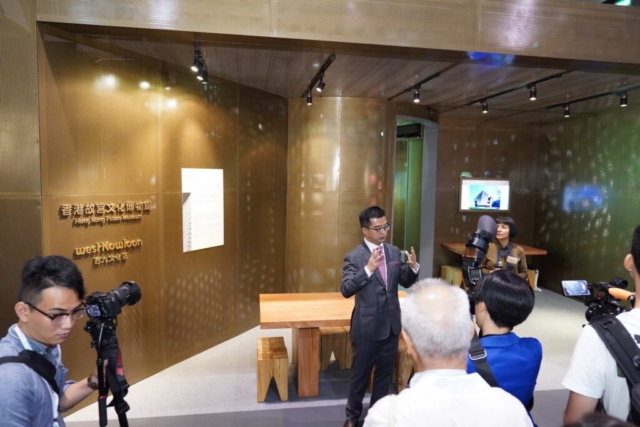09-03-20
Hong Kong traded some of the most beautiful antiques that the world has ever seen. We are a free port without currency control. Laws to regulate antique trade are almost non-existent. Hollywood Road in Central is like a repository for collectible items from 83 dynasties of China. The road collects and distributes antiques. It was a popular tourist spot 80 years ago and remains so today.
When he was small, Andy Hei lived in Tsim Sha Tsui, a tourist area, but hung about on Hollywood Road with his father who had been doing antique business in Hong Kong since the age of 16 after departing from Beijing to Hong Kong in search of a better livelihood in 1949.
Andy took over the antique business in 1987 from his father who is now over 80s. He recollected, “Before 1980s, Hong Kong was the trading centre for Chinese antiques as China was closed to foreigners. My Dad told me in those days that there were 2 common ways to sell antiques. One was ‘barter trade’. For example, I exchanged my jade for your vase so that I could later sell your vase to my customer. The second way was to hand-carry antiques to foreign countries including Singapore, America and Britain for sale in exhibitions and fairs. He changed our family completely after selling a piece of antique in Chicago for US$1,000. The money was used to set up his trading firm at home in 1969. My father used to tell me, ‘Son, life is a chain of big hurdles, from birth to death. Only good players can overcome them. Hong Kong did her best in the past. We suffered from and went through Chinese Civil War in the 40s, Korean War in the 50s, Civil Riot in the 60s, Oil Crisis in the 70s, Stock Market Crash in the 80s, Asia Financial Crisis in the 90s and the SARS outbreak in the 2000s. Luckily, we still survive.’ That illuminated me. Despite the commotion last year and coronavirus pandemic this year, I am optimistic regarding the economic recovery of Hong Kong.”
I asked, “What satisfaction do you derive as an antique dealer?” Andy said, “I love history. Every antique is part of history and each piece is often new to me. I enjoy establishing a rich dialogue with historic relics and asking about their past. An antique is also an item having value because of its artistic or aesthetic significance. They are beautiful. Sometimes, I feel like a detective investigating all possible stories about the object, like its condition, rarity, utility, ownership and other unique feature. Antiques are certainly more than collectibles.”
I was puzzled, “For the antique investment of a layman, what is the road to success or road to failure?” Andy laughed, “They are almost the same. Let me tell you 9 interesting observations.”
“Research is the highest form of passion for antiques. When you decide if or not to buy an item, you must know every single detail about it, its past and present. ‘Google’ or ‘Baidu’ is not synonym for research.”
“You also need an antique expert as a mentor—someone that you see regularly and learn from him. A true mentor will not say, ‘You must listen to me or go ahead to buy it.’ He will explore, consider and share the good and bad points about an antique.”
“Always spend only up to 50% of your budget and buy the best piece in your opinion. To err is human and you could have made a wrong decision. So, you must at least have the remaining 50% for a second go. Antique collectors love the best work of art and no wise one will later buy your inferior collections just because they are cheaper.”
“There is never 100 percent certainty about the value of an antique. Be brave! Hold your breath and make a quick decision when you want to buy. If you are irresolute, antique investment is not the right fit for you.”
“You should not toss your focus of interest back and forth. Don’t try to buy too many things like porcelain, jade, figurines, jewellery, furniture and paintings….Be focused and devote your energy wisely to one or two specialties.”
“One should know the 2 markets games: auctions and galleries. Both have risks. Auction house likes to arouse a crowd to bid and price can be excessively high. In a gallery, work of art needs only one person who wants to pay for it but you may be dragged into a difficult negotiation.”
“The price of an antique can be subjective. There is nothing which can better enhance the value of your collected antiques than the promotion to the other collectors of what you had. You may hold exhibitions, organize talks and publish books. After you gather enough friends with shared values and tastes, they may be the potential buyers when you later auction your collections.”
“With all due respect, one is not a true antique collector if he just keeps but never sells. Progress is made only by improving the rarity and uniqueness of your collections. You have to learn to dispose of your relatively inferior pieces in exchange for superior works.”
What a relief that I am not an antique investor as the antique knowledge can only advance by slow steps and not by leaps. An investor without sophisticated knowledge is like a house without a foundation. I asked Andy, “What is your final piece of advice to an antique collector?” Andy answered seriously, “I always dissuade people from leaving their antiques to children who do not appreciate art or history. The ultimate mission of an antique collector is to help preserve relics of the past as our important cultural properties. At the end of his life, it is not about how rich an antique collector could have been. It is about the degree of his loving antiques measured by the degree of his generosity in giving back the valuables to museums.”
Now, I realize some people collect antiques not because they are beautiful. It is because these experts have true and selfless love for the history, art and civilization of mankind.
This article can also be found at the following sites:



